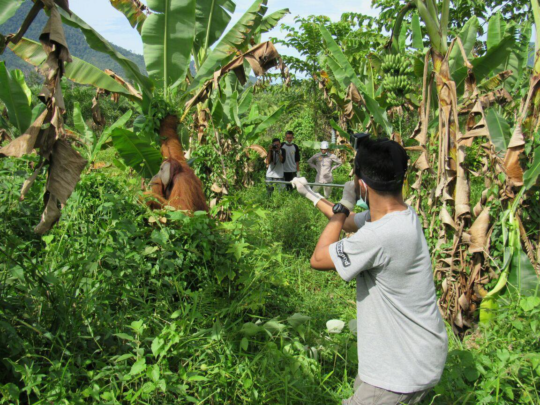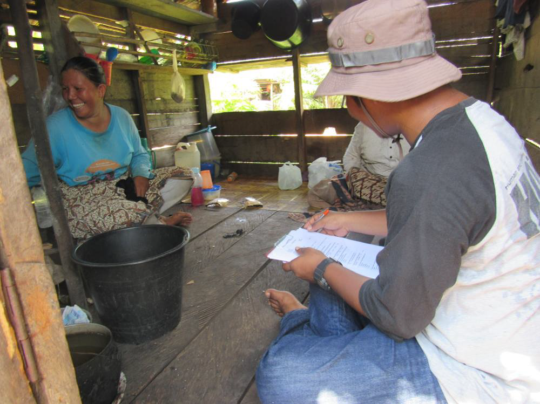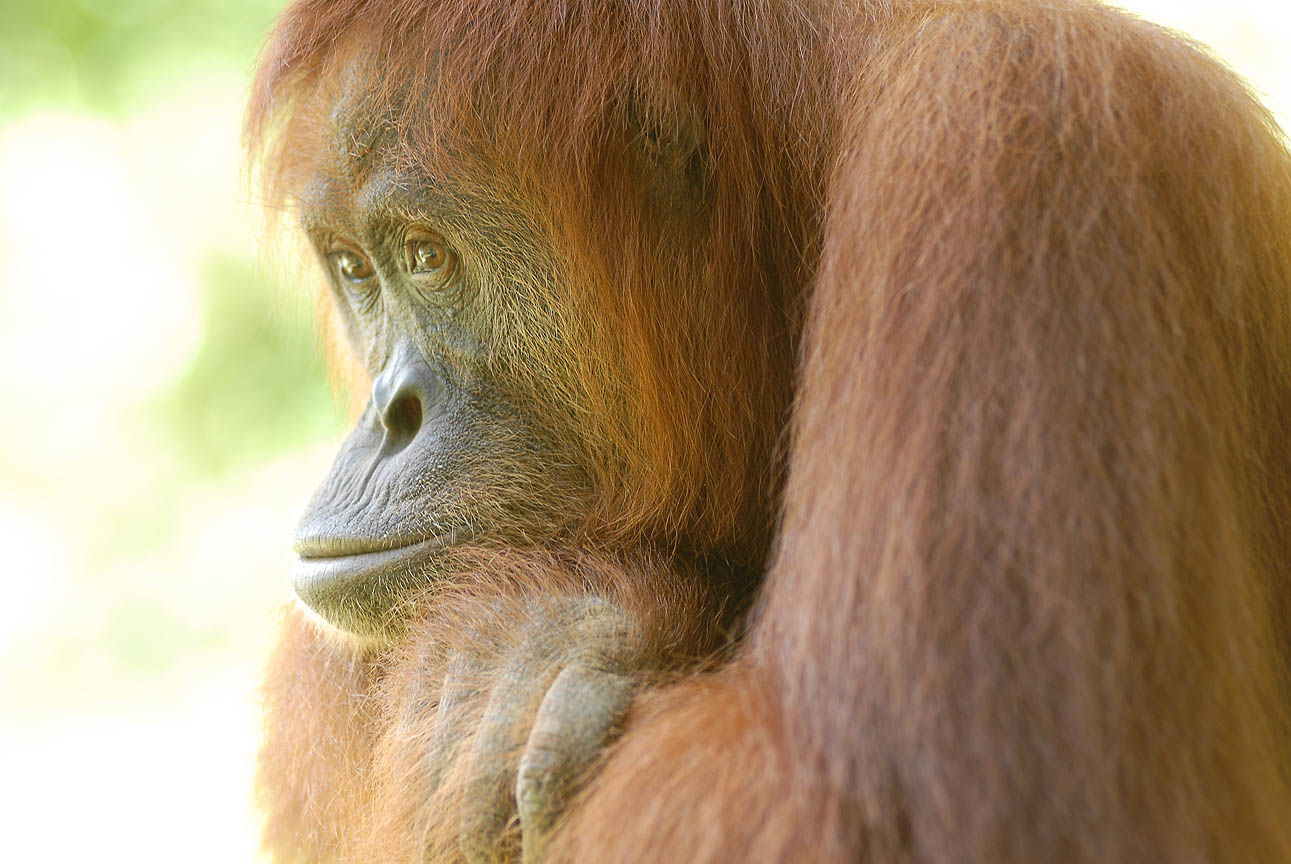While we understand that economic development is essential for local communities and poverty alleviation, we need all actors to understand why Sumatran orangutans and their habitat are so important in order to reach our sustainable development and conservation goals.
That’s why our Human Orangutan Conflict Response Units (HOCRU) do not just focus on the translocation of isolated orangutans or freeing illegally kept ‘pets’. A huge part of their work is dedicated to raising awareness about conservation issues among local populations. Two main sets of people are targeted: schools, as the children of today are the conservation leaders of tomorrow, and farmers, as they suffer from orangutans raiding their crops.



